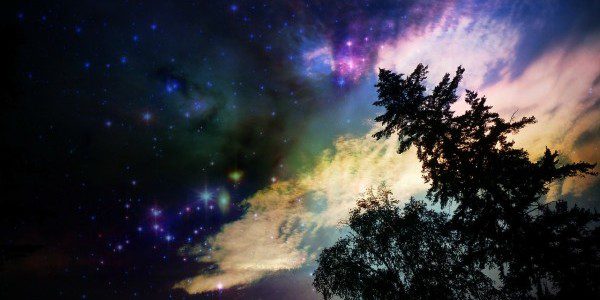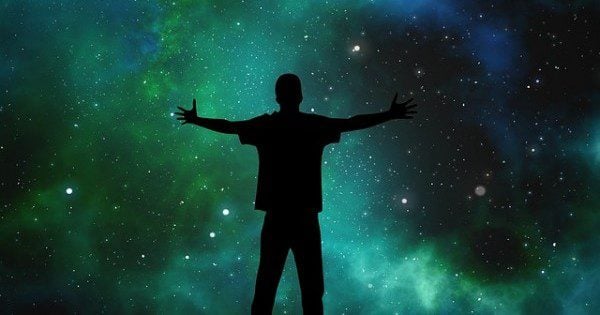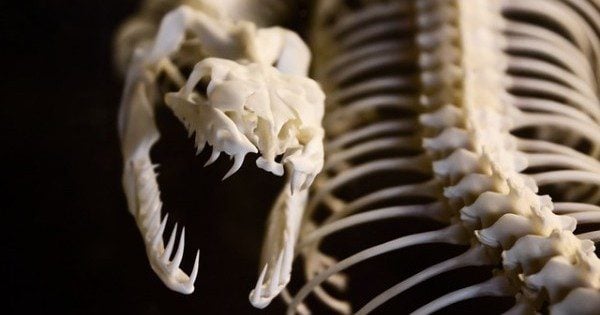Every religion has its creation story–and multiple variations within each religion.

Where did we come from? This is one of the big life questions.
The role of creation stories is explored with depth in Morgan Freeman’s (upcoming, 4/24), The Story of God.
Freeman raises important questions: Did civilization give rise to God? Is God a product of civilization? Or does God–as active agent–prompt the emergence of civilization in the first place, by giving enough of a sense of the divine to humans, enough to organize their lives around that sense of transcendence?
Creation stories give us order, structure, and meaning. They function similarly to beliefs about immortality, or life after death. Immortality beliefs help human beings cope with the awareness of our mortality. They deflect otherwise paralyzing fears and anxieties, which rumble underneath the knowledge of our finitude, our frailty, our inevitable death.
Creation stories enable us to say, “that’s where I came from.” “This is who I am.” We draw significance, my meaning, and self-esteem from the stories about our heritage, family, tribe; all the way down to the beginnings of our species and even our universe.
The disorder and chaos of everyday experience, the injustice and brokenness of so much of the world, is given some shape by the stories of our origin and of our destination.
Mircea Eliade, in The Sacred and the Profane, writes that religious people have valued the sacred and have utilized the sacred in contrast to the profane, in order to acquire a “fixed point” in a dizzying world. He writes,
It is for this reason that religious man has always sought to fix his abode at “center of the world.” If the world is to be lived in, it must be founded–and no world can come to birth in the chaos of the homogeneity and relativity of profane space. The discovery or projection of a fixed point–the center–is equivalent to the creation of the world… (22).
And then, referring to the mythic cosmology of the Achilpa, an Australian Aboriginal tribe, he writes,
Life is not possible without an opening toward the transcendent; in other words, human beings cannot live in chaos. Once contact with the transcendent is lost, existence in the world ceases to be possible. (34)
Creation stories, mythologies about origins, give us a fixed point, a steady place from which to stand, an identity in a world of flux. Even more, they open up for us windows of transcendence through which we can see ourselves in the light of seeing the divine–our origin as dependent on Someone else.
But often those stories conflict. They differ in fundamental details. They cannot all be true–certainly from the perspective of a realist understanding of origins. In those vastly differing stories we find at least some of the roots of much human conflict.
It was interesting to hear the Vatican theologian say that scientific explanations of cosmic origins are not the same as theological explanations are not the same. The Big Bang can coexist with Genesis’ in the beginning, God created the heavens and the earth…
Darwinian evolution can coexist with a theology that says human beings were created in the image of God. It can even coexist with a theology of inherited sin and a historical Fall.
Science describes origins at one level, mythology and even theology at other levels. We shouldn’t just leave it at that. The “independence model,” whereby science and theology have nothing to say to each other, is inadequate. It’s better to see them as conversation partners in a dialogue; a dialogue which aims toward a whole, synthesized truth.
And yet, theology and religion, as they peer into creation, offer something unique.
Theologically speaking, stories of creation open us up to the transcendent (Eliade) and tell us that we are not alone; matter is not everything. Chaos does not reign supreme. There is something–even Someone–more. And we came from that more.
Back to Freeman’s question:
Are those creation stories–and the immortality beliefs, too–merely naturally (humanly) manufactured stories to help us deal with the pressures of life? Are they simply and solely human constructions–or do they emerge in some way as responses to a divine reality, to God? A prior reality which brought us into existence, whether out of nothing or as an eternal emanation, yet dependent on God for existence?
Who can know for sure?
But I believe that creation stories are signals of transcendence–glimmers of an other–a One whom we should thank for our existence, for our life, for the beauty of our world and for a hope in the life that is yet to come.










